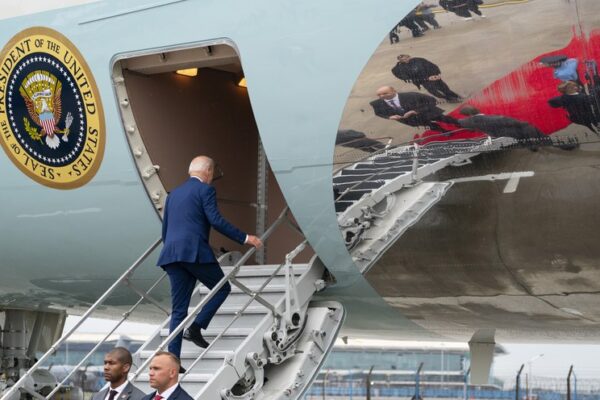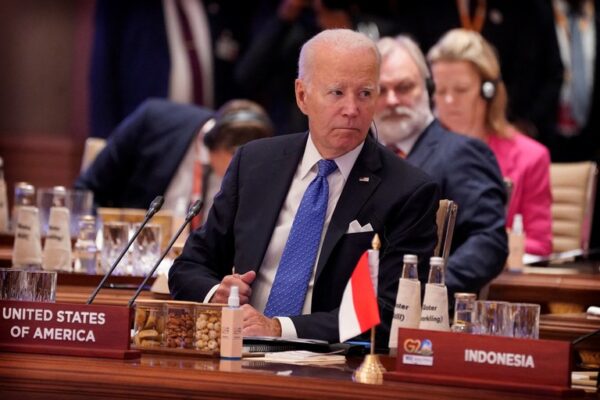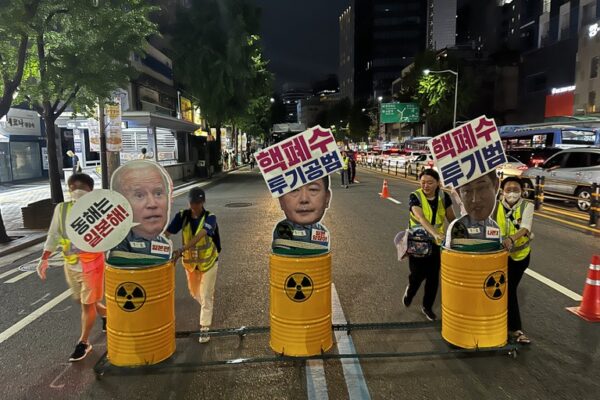
South Korea Presidents clash over North Korea policy
Five years ago, when leaders of the two Koreas exchanged a historic handshake in Pyongyang, the Korean people looked on with hope, wishing that this masterpiece of diplomacy may finally put an official end to the seven-decade-long war on the peninsula. But as time surges forward, the once-celebrated inter-Korean agreement stands vulnerable, overshadowed by North Korea’s escalating nuclear threats, and its leader, Kim Jong Un reinforcing ties with his fellow authoritarian leader Vladimir Putin of Russia. Now, South Korea grapples with a growing divide on whether to uphold that deal. The debate is set to intensify on the back of former South Korean President Moon Jae-in’s attendance of the commemorative event of the fifth anniversary of the September 19 Pyongyang Joint Declaration in Seoul on Tuesday. “The [current] government and the ruling party have expressed their intentions to reconsider or possibly scrap the military agreement,” Moon said at the event. “However, it’s crucial to note that the inter-Korean military agreement has been instrumental in preventing military confrontations between the two Koreas.” Moon’s comments are largely seen as a warning against the administration of President Yoon Suk Yeol for its hardline policy on North Korea. “It would be irresponsible to remove the last safety pin in place,” Moon added. “As relations between the two Koreas deteriorate and military tensions escalate, it’s imperative for both sides to uphold the agreement.” His remarks may potentially improve public opinion of South Korea’s progressives before the general election in April. Should that happen, it would conversely work against Yoon’s hardline policy on Pyongyang. Under the 2018 inter-Korean military deal, the two Koreas agreed to “end hostility” and to “take substantial steps to make the Korean Peninsula a permanent peace zone.” “Military accords should be honored and respected to the fullest extent to ensure dialogue continues and to prevent dire consequences,” Moon said. The former president was supported by key officials from his administration – his foreign minister Kang Kyung-wha and unification minister Kim Yeon-chul at the event. North Korean leader Kim Jong Un with South Korean President Moon Jae-in inside the Peace House at the border village of Panmunjom in Demilitarized Zone, South Korea on April 27, 2018. (Credit: AP) South Korea’s progressives see consistent engagement with North Korea as a potential catalyst for altering Pyongyang’s hostile behavior and its actions of violating human rights. They believe that integrating North Korea into the international stage would foster transparency, open avenues for dialogue, and gradually shift the North’s stance towards global norms and values. Conservatives, on the other hand, have long protested against what it defined as far-fetched engagement, saying that excessive aid to North Korea despite its continued provocations would only foster its nuclear ambitions. The conversative Yoon administration is thus adopting a hawkish policy on North Korea, aimed at pressing Pyongyang to forfeit its nuclear weapons. The ongoing debate is set to gain its momentum, as Yoon’s Defense Minister nominee Shin Won-sik has opined about his inclination to scrap the inter-Korean military deal last week. Some analysts consider the deal invalid, with North Korea returning to its brinkmanship diplomacy after its high-stakes summit with the United States collapsed in Hanoi February 2019. For instance, in November 2019, North Korea fired coastal artillery near the maritime buffer around the border island of Changlin-do. In May 2020, North Korea fired gunshots towards a South Korean guard post at the inter-Korean border, and in September 2020, a South Korean civilian was shot dead at the maritime border by the North and subsequently incinerated. Further complicating matters is North Korea’s amplified nuclear and missile threats. The threats are expected to further intensify with Putin vowing to aid North Korea in developing its satellite technology. Rocket technology can be used for both launching satellites and missiles. For that reason, the UN bans North Korea from launching a ballistic rocket, even if it claims to be a satellite launch. South Korea’s internal disagreement surrounding its North North Korea policy could potentially undermine that of the allies. The lack of a unified stance – be it hardline or dovish policy – risks disabling Seoul and Washington to form a coherent strategy that could be implemented in the long-term. Experts, however, noted that the main reason for this policy inconsistency is due to Kim Jong Un’s altered stance on his diplomacy after the fallout in Hanoi in 2019. “North Korean inconsistency is what leads to South Korea having to change its policy. If Pyongyang had continued to engage post-Hanoi summit, I think that both, Moon first, and Yoon now would have probably sought to try to accommodate this. Alas, this hasn’t been the case,” said Ramon Pacheco Pardo, Professor of International Relations at King’s College London and the KF-VUB Korea Chair at the Brussels School of Governance of Vrije Universiteit Brussel. “Likewise, I think that it was domestic instability in North Korea in the late 2000s, due to Kim Jong Il’s health condition, and then the transition process to Kim Jong Un, [being] the main reason behind the end of the inter-Korean engagement. So liberals and conservatives may not fully agree on how to approach North Korea, but I actually think that Pyongyang is the main reason why Seoul changes its policy.” Edited by Elaine Chan and Taejun Kang.






